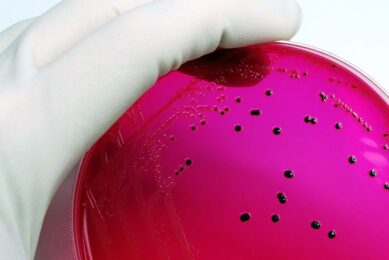Does Organic also mean “Safe”?
The ongoing US outbreak of E coli O157: H7 attributed to organic spinach as the vehicle should stimulate concern among poultry producers in relation to their products. By Simon Shane
The ongoing US outbreak of E coli O157: H7 attributed to organic spinach as the vehicle should stimulate concern among poultry producers in relation to their products.
As of Sunday 17th September, cases have been recorded in 20 states with over 150 confirmed diagnoses, numerous hospitalizations and at least one fatality. Preliminary investigations have tentatively identified one large organic produce farm in California as the source but epidemiologic investigations are in progress to establish the mechanism by which spinach became infected. In all probability cattle manure used as a “natural” fertilizer will be implicated, following previous cases of VTEC infection in children consuming organic non-pasteurized apple juice and lettuce.
The resulting publicity on TV and print media, incorporating statements from representatives of the US-FDA and the Centers for Disease Control has resulted in virtually all fresh packed spinach and salad mixes being withdrawn from supermarket shelves and restaurant menus through the entire Nation.
Rules based on emotion not science
The prospect of an egg-borne Salmonella Enteritidis or paratyphoid outbreak in consumers, associated with organic production is always a possibility as flocks are housed on litter and allowed access to range. Organic rules prevailing in the USA and the EU are strict as to exclusion of any GMO-derived ingredients in feed. This restriction is based on emotion rather than science since there are absolutely no adverse health effects from either direct consumption of Bt-maize or Roundup®-resistant soybean products or from feeding these ingredients to livestock and poultry.
The prospect of an egg-borne Salmonella Enteritidis or paratyphoid outbreak in consumers, associated with organic production is always a possibility as flocks are housed on litter and allowed access to range. Organic rules prevailing in the USA and the EU are strict as to exclusion of any GMO-derived ingredients in feed. This restriction is based on emotion rather than science since there are absolutely no adverse health effects from either direct consumption of Bt-maize or Roundup®-resistant soybean products or from feeding these ingredients to livestock and poultry.
HACCP rules not applied to small-scale units
From personal observation and experience small-scale units frequently are deficient in hygiene and biosecurity and lack the surveillance systems for pathogens as applied by commercial farms producing generic, branded and specialty eggs. Poultry meat processed in small plants although conforming to organic rules may be contaminated with Salmonella spp Erysipelothrix spp and Campylobacter jejuni due to failure to implement HACCP and other sanitary precautions which are standard procedures in large mechanized facilities with advanced evisceration and refrigeration installations.
From personal observation and experience small-scale units frequently are deficient in hygiene and biosecurity and lack the surveillance systems for pathogens as applied by commercial farms producing generic, branded and specialty eggs. Poultry meat processed in small plants although conforming to organic rules may be contaminated with Salmonella spp Erysipelothrix spp and Campylobacter jejuni due to failure to implement HACCP and other sanitary precautions which are standard procedures in large mechanized facilities with advanced evisceration and refrigeration installations.
Organic does not necessarily mean safe
The FDA has previously warned consumers that “organic” is not necessarily equivalent to “safe”. This contention is supported by recent studies conducted by Universities in Ohio and California which confirmed higher levels of potential pathogens on certified organic chickens at point of sale compared to conventional products from large broiler integrations.
The FDA has previously warned consumers that “organic” is not necessarily equivalent to “safe”. This contention is supported by recent studies conducted by Universities in Ohio and California which confirmed higher levels of potential pathogens on certified organic chickens at point of sale compared to conventional products from large broiler integrations.
The magnitude and marketing implications of the E coli outbreak currently in progress in the USA should be recognized by organic producers. These farmers are ethically bound to apply all practical scientifically proven methods to suppress food-borne pathogens in their products and to implement appropriate surveillance and quality control procedures which are standard in the commercial industry.
By: Simon Shane
By: Simon Shane













